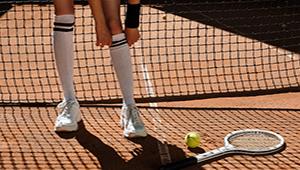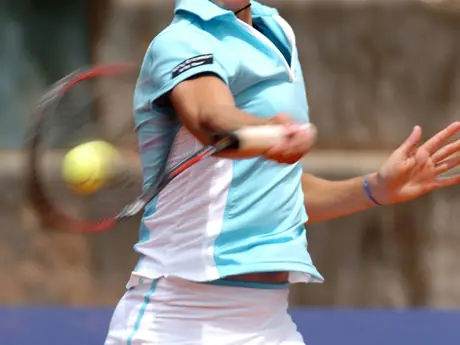If you are tough, resist, and keep them under pressure by being miserly with your errors, they will deflate and play worse.
3. Stop the slide before the set ends.
Another momentum issue arises when you start out a match playing poorly and find yourself substantially behind in the set, say 5-1 or 5-2.
In this situation, many people feel like the set is going to be lost in any case and are reluctant to put too much effort into what appears to be a hopeless cause. So they decide to get it over with quickly and start out fresh in the second set.
This is a big mistake for many reasons.
The most obvious is that no matter what the score you are not certain to lose the set, so it always pays to give it your strongest effort in hopes of a come-back.
The second is that you forego the opportunity to tire your opponent mentally. He is ahead, and players in this situation often feel the pressure to finish and get the set tucked comfortably away in the win column.
Forcing them to struggle for it is mentally draining and can set them up for a breakdown if you can get them into a third set.
A third important reason is that you fail to halt momentum that is going against you.
Turning the match around may require substantial tactical and mental adjustments. It is best to make these as soon as possible while you have a little leeway -- and before your back is completely against the wall.
Otherwise, you must stop the slide immediately in the second set from a dead stop, and if you fail, you will find yourself running out of options.
It's best to end the first set playing on even terms, even if you lose it, so the second set begins without you having to counter negative momentum.
In summary, momentum is an issue separate and aside from who is winning and who is losing. Smart competitors are aware of it and take deliberate steps to avoid allowing it to build against them.
Allen Fox, Ph.D., is a former NCAA champion, Wimbledon quarterfinalist and a three-time member of the U.S. Davis Cup team. Dr. Fox also coached the Pepperdine tennis team to two NCAA finals. He currently lectures on sports psychology and is the author of several books on the mental side of competition.
- 2
- of
- 2








Discuss This Article